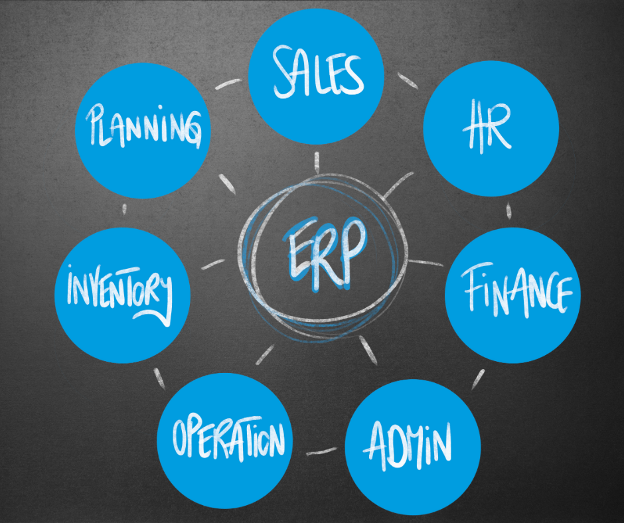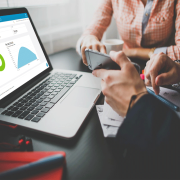Will upgrading your current system work?
It is important to review your software systems every five years to optimize performance. You may indeed be able to upgrade your current system in order to use it to its full capabilities. What is working well? What isn’t working? Is it missing software functionality or is it an employee training issue? Do systems integrate with other systems or are people providing the link via additional data input or email communication? What matters most is that your current solution meets both your present and anticipated future needs.
Have you identified the functionality you would like in a new software solution?
 If an upgrade of your current system won’t address issues identified above, consider new software. Isolate your business’s biggest challenges that a new software system would ideally solve. This involves identifying shortcomings of the current system, identifying ideal functionality in a new system and putting thought into scalability needs over the next 10 years. If this sounds daunting, we at Parallel Solutions can help. We like to go into a company and visit the manufacturing and warehousing facilities to get a complete understanding of how your business works. Then we can help you prioritize which functionality your business needs to run smoothly, efficiently, and profitably.
If an upgrade of your current system won’t address issues identified above, consider new software. Isolate your business’s biggest challenges that a new software system would ideally solve. This involves identifying shortcomings of the current system, identifying ideal functionality in a new system and putting thought into scalability needs over the next 10 years. If this sounds daunting, we at Parallel Solutions can help. We like to go into a company and visit the manufacturing and warehousing facilities to get a complete understanding of how your business works. Then we can help you prioritize which functionality your business needs to run smoothly, efficiently, and profitably.
Are you considering cloud based or premise based software?
On-premise solutions are located / installed on hardware that is owned and maintained by your company. Cloud ERP is an Enterprise Resource Planning system that is hosted on a global platform like Amazon web services or a local hosting platform or on your own servers, that is accessed via a web browser. The solution you choose will influence ownership costs, security, system upgrades and accessibility.
Will business growth require expansion of functionality in the future?
Considering the long-term benefit of an ERP system is not always easy, but it is essential for getting the right solution for your company’s needs. In one case, our client, ALTEO, considered system needs and came up with a straightforward list. The experts at Parallel Solutions helped fine tune ALTEO’s business process model and dove deeper into the needs analysis over the long term.
Scott Barnhouse, Director North America., found this service to be especially valuable. “Parallel Solutions guided us through the decision process regarding the specific ERP that was best suited to our company and showed us that QuickBooks Enterprise would not be our best long term solution. Initially, we did not fully understand the longer term, total needs of the company.”
 Do you have management support for software change?
Do you have management support for software change?
Management buy-in and company culture are key for ERP success. After all, it is the people, not the software, who implement the changes. Even if benefits of ERP seem obvious compared to a legacy system, selling large-scale change is never an easy task. Management’s focus is primarily the bottom line, which means getting buy-in requires diving into true cost and ROI projections, defining clear objectives and metrics, and creating a streamlined process. Be sure to provide firm numbers and craft a compelling financial argument.
How do you select an ERP vendor?
ERP launch, implementation, training and ongoing support, is as effective as the team of people leading these efforts. When you choose a vendor, choose a group of people who have the values and level of experience you trust. RFPs are a common way to vet potential vendors for your ERP system. However, asking valued customers and vendors which software they use may save you time and money. Are they happy with the service they received during implementation and ongoing support? We also suggest industry references as they are a more effective gauge of compatibility with a business partner. Be sure to ask: What other companies have you worked with that have similar business processes? Who, specifically, at the firm will be helping us with ERP implementation and what is their experience? Take time to talk and interview existing clients about their experiences with your potential vendor.
 What is your budget?
What is your budget?
So what’s this going to run me? The common answer in the ERP industry is “it depends,” and this can be frustrating for clients. The typical process has end users selecting an ERP vendor and then both firms work together to determine costs and terms. This doesn’t mean going into the process without a budget. Some factors that determine price include: software costs, training, hardware and hosting costs. Be wary of price guarantees. Fixed price quotes typically build in a large cushion, so while it offers insurance against vendor incompetence, it may cost more if the project takes less time than anticipated. Also, fixed cost is never guaranteed. If not properly specified in the contract, there will be change orders.
Do you have a time-frame?
How much time should be dedicated to ERP implementation? Aside from the vague answers such as “as long as it takes” and “it depends,” mid-size firms (25-150 users) can plan to spend 6-12 months rolling out their new ERP software. Keep in mind that ERP projects are actually business transformation projects and, therefore, the timeline really does depend on factors like the level of customization, business complexity, data integration issues, executive buy in, creation of an effective project team and successful training.
What are your resources for implementation?
While a competent and experienced vendor takes the guess work out of implementation and training, there are some responsibilities that fall to the end user, and having the resources for these tasks is essential. Cleaning up and managing data before the transfer to a new system is one such task. Your ERP vendor can help you better understand what other resources you, as an end user, will need for the planning, implementing and training phases of ERP software replacement.
Do you have a comparison guide for your top choices?
Selecting an ERP system to run your business is a daunting decision that will affect your company for many years. Many products offer the same or similar features, and it can be confusing to sort out what’s essential and what’s not. This checklist can help – ERP-Evaluation-Checklist.
Parallel Solutions has been implementing ERP software for over 25 years. If you have questions about whether it’s time for a change in your current ERP system, give us a call at 440-498-9920 or contact us and we’ll be happy to discuss the best solution for your needs.




